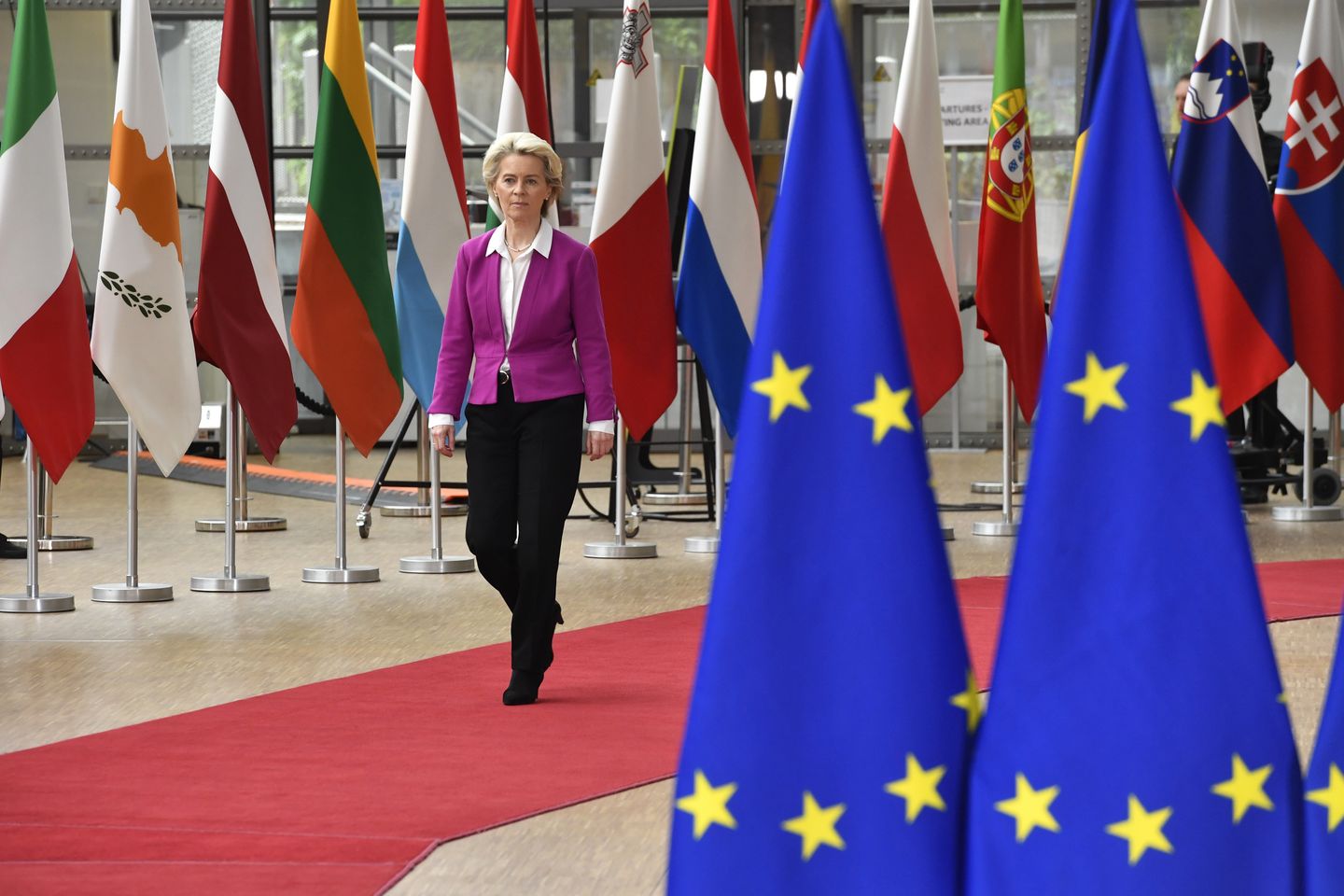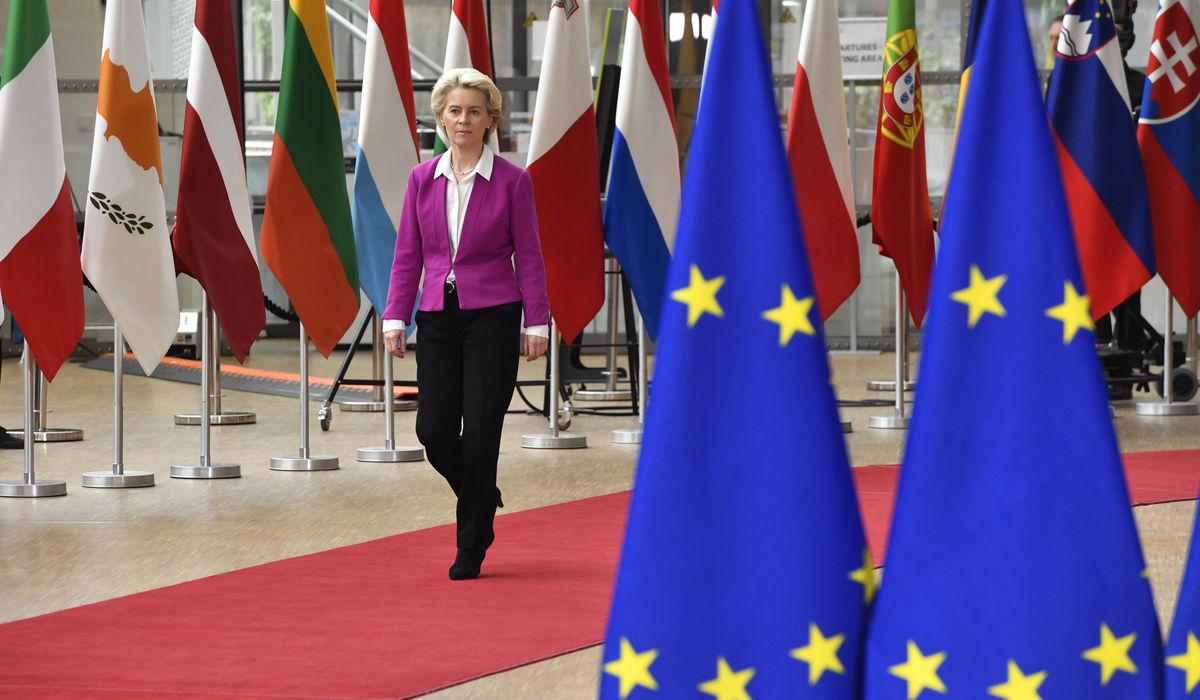

European Union leaders gathering Monday for a two-day summit in Brussels are setting a low bar for expectations for a tough new sanctions policy to cut off the supply of Russian oil exports as a punishment for Moscow’s invasion of Ukraine.
While the U.S. and Western allies quickly came together on a series of punishing waves of economic sanctions as the war began in February, the heavy reliance of some EU states on Russian oil imports has made collective action in the sector more difficult.
Hungary has been the most vocal EU state in warning that an immediate and total ban on Russian oil would decimate its economy. Slovakia and the Czech Republic are also heavily dependent on supplies from the southern Druzhba pipeline from Russia for oil supplies.
A total cut-off requires a unanimous decision from the bloc’s 27 member states.
Ursula von der Leyen, president of the European Commission, the EU’s executive body, proposed a full embargo of Russian oil more than three weeks ago, but the move exposed some of the first major cracks in EU unity against the Kremlin since the war began.
“I don’t think we’ll reach an agreement today,” Estonian Prime Minister Kaja Kallas told the Reuters news agency.
SEE ALSO: Russian foreign minister again denies reports of Putin illness
Some EU leaders were already talking about a more modest step than a full cut-off, including perhaps a ban on Russian oil tanker deliveries while allowing the pipelines to continue flowing for now.
A second proposal includes a classic bureaucratic fudge: creating a new independent commission to study the issue and report on possible measures down the road.
Roughly half of Russia’s oil exports before the war began went to Western European markets, and President Vladimir Putin has tried to increase the pressure by demanding that foreign customers pay for their oil in rubles or ruble-denominated instruments.
The watered-down measures have been a source of frustration for Ukrainian President Volodymyr Zelenskyy, who is reportedly set to address the EU gathering by video link later on Monday.
Mr. Zelenskyy said last week the failure to adopt a full embargo was giving Mr. Putin nearly $1 billion a day to help finance his invasion.
“This is what sanctions should be: They should be maximum, so that Russia and every other potential aggressor that wants to wage a brutal war against its neighbor would clearly know the immediate consequences of their actions,” he told the Davos global economic summit in Switzerland last week.
The failure to reach a deal on Russian oil exports is holding up formal implementation of other EU sanctions, including measures targeting Russian bank activity and asset freezes and other financial penalties for aides to Mr. Putin and other prominent Russian figures.
